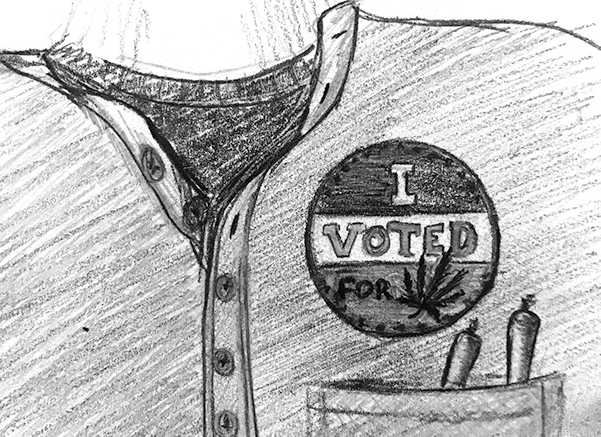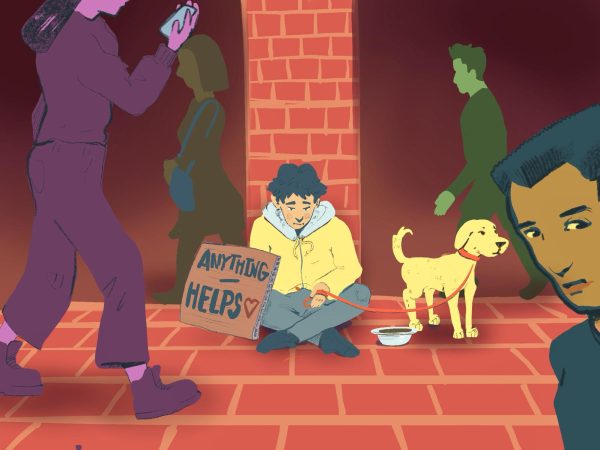Reform criminal justice and legalize
April 26, 2019
Cannabis is all the rage in Washington, D.C., right now.
Politicians, especially Democrats, are increasingly jumping on the “legalize cannabis” bandwagon.
Out of the top Democrats leading the polls for 2020, Mayor Pete Buttigieg, Rep. Beto O’Rourke, Sens. Bernie Sanders and Kamala Harris have all come out in support of legalization.
I am in no doubt thrilled by this development. President Barack Obama ran opposing full legalization, and his actions while in office are indecisive at best.
Legalization and decriminalization seem to be the way forward, at least for the Democratic party. As many as two-thirds of Americans support legalizing cannabis, according to an October 2018 Gallup Poll.
But one part of the current legalizing trend that disturbs me is Democratic politicians refusing to talk about the social justice aspect of legalization.
Certainly, the candidates who have long supported legalization have talked about cannabis prohibition’s disproportionate effect on people of color.
Cannabis legalization is first and foremost a social justice issue. Black Americans are arrested and incarcerated for cannabis-related offenses at a rate up to 11 times higher than white Americans, according to a 2013 report by the American Civil Liberties Union.
Candidates like Sanders and Warren have talked about this in great detail, and even contenders like O’Rourke and Buttigieg have mentioned legalization in the context of social justice and criminal reform.
But simply mentioning it doesn’t go far enough. And even worse, candidates such as Harris are ignoring their own role in the incarceration crisis.
Take Harris’ recent appearance on the New York City pop culture radio show “The Breakfast Club.” On it, she voices her support for legalization and says that she smoked cannabis while in college.
She conveniently leaves out the fact that as district attorney for San Francisco and attorney general for California, she aggressively prosecuted even small-time offenders for cannabis charges, as described in a Jan. 19 New York Times op-ed.
As attorney general from 2011 to 2017, Harris remained in office after the passing of recreational cannabis use in California in 2016.
She could have used her power as attorney general to clear the records and release those in jail for nonviolent cannabis offenses from prison. She chose not to, even while publicly supporting the legalization effort.
And now, while running for president, she is supporting the federal legalization of cannabis and clearing the records of those who have been convicted of nonviolent cannabis charges.
She says nothing about freeing those currently incarcerated. No apologies to the families that she broke up. And no regrets for the lack of action during her time as attorney general.
Even former Vice President Joe Biden has attempted to soften his stance on cannabis to be more in line with Obama-era policies, according to an April 16 Washington Examiner article.
Biden has taken initiative in passing most of the “tough-on-crime” War on Drugs legislation in the past several decades, as shown in the same Washington Examiner article.
Biden has continued to stand by that legislation even as evidence of the racial disparities in policing of the laws he designed were known.
We should not tolerate politicians who are coasting on cannabis’ popularity. They can’t just show their support to win easy votes without showing their plans as well.
Politicians must support and be willing to implement comprehensive criminal justice reforms alongside legalization.
















![Can’t buy me [self] love](https://vtcynic.com/wp-content/uploads/2024/04/self-care-FINAL-600x398.jpg)
